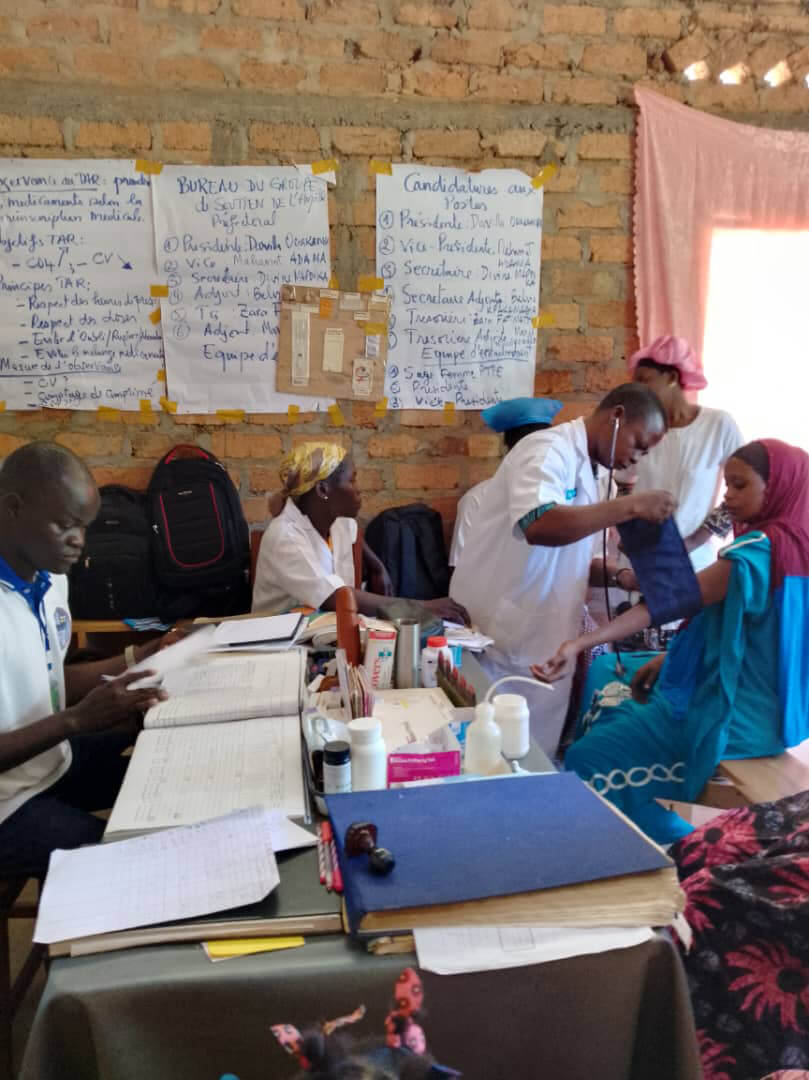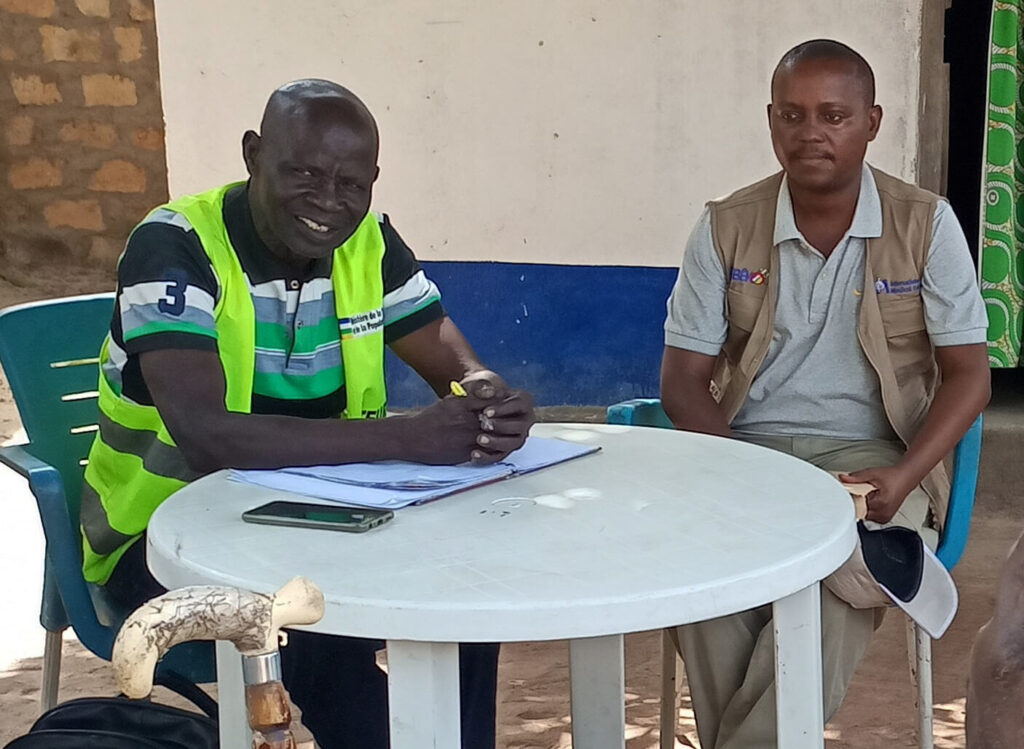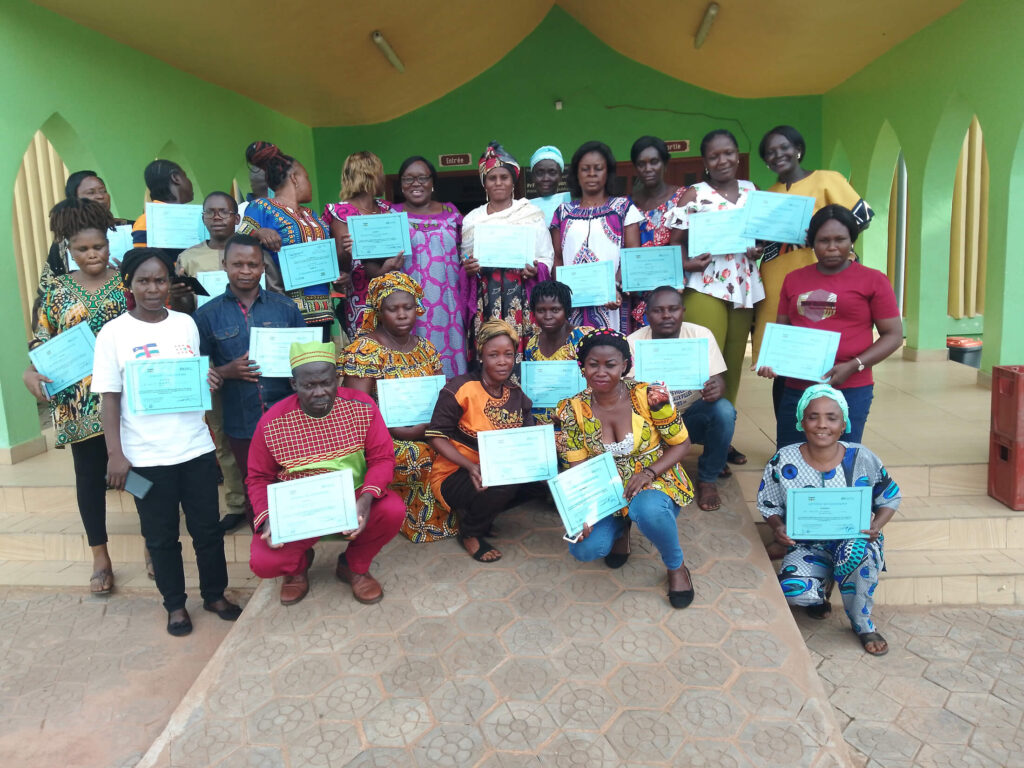One of the most important parts of International Medical Corps’ mission involves fostering self-reliance in the communities we serve. To make sure progress can continue long after we finish a humanitarian intervention, we provide ample training so that community members can become first responders themselves. We also build lasting relationships with extraordinary people on the ground—people like Ramadan Mezane, who is fighting against maternal mortality in the Central African Republic (CAR), with help from Alphonse Ndagijimana, International Medical Corps’ Nurse Services Coordinator.
Supporting CAR with Critical Knowledge
Conflict between religious militias within CAR, coupled with an unstable government, has resulted in catastrophic interruptions in the day-to-day lives of CAR’s inhabitants. The difficult humanitarian situation in CAR has led to the emergence of almost insurmountable barriers to access for many crucial healthcare services—particularly for women and children. There are only eight physicians and 41 nurses or midwives per 100,000 people in CAR—a drastically lower number than the 250 medical staff (doctors, nurses and midwives) per 100,000 people recommended by the World Health Organization. Midwives and other similarly trained healthcare providers can meet many essential sexual, reproductive, maternal, newborn and adolescent healthcare needs, and their shortage in CAR—along with other factors—has had tragic results. CAR has a maternal mortality rate of 829 deaths per 100,000 live births—the fifth-highest rate in the world.
Because women and children are disproportionately affected by humanitarian crises, International Medical Corps prioritizes their care, especially in countries with poor healthcare infrastructure and human resources. Last spring and fall in Bria and Bambari, we trained 40 doctors, midwives, nurses and assistants on basic emergency obstetric and neonatal care. They now have the knowledge, clinical expertise and decision-making skills needed to respond appropriately to obstetric and neonatal emergencies—and are also certified to train their colleagues. Furthermore, to highlight the role of the wider community in reducing mortality among women and their infants, as well as the importance of prompt, skilled care, we facilitated a one-day workshop for 16 community leaders from Bambari.

These continuing education opportunities and a number of other humanitarian initiatives would not have been possible without Alphonse, the primary organizer of the project in Bria. A nurse with a Master’s degree in public health, Alphonse has worked with International Medical Corps since 2018, first in the remote Vakaga region of north CAR, and then in Bria. Before joining International Medical Corps, Alphonse spent almost a decade coordinating control efforts for HIV/AIDS in refugee camps in his native Rwanda, working with the Ministry of Health as well as with local NGOs. His higher education, extensive experience in health management (particularly in rural areas) and history with HIV/AIDS control led International Medical Corps to select him for the role in CAR. In the five years he has been with us, he has supported several complex projects in the most rural, crisis-affected areas of the country, and has conducted numerous lifesaving interventions.
Earning Respect, Saving Lives
Alphonse is one of the many remarkable people reshaping healthcare in CAR. Another is Ramadan, Alphonse’s close friend and a participant in International Medical Corps’ training-of-trainers course in Bria. Ramadan is a medical assistant at Tiringoulou Secondary Hospital in the remote Vakaga prefecture in northern CAR. Despite few formal qualifications, Ramadan runs the hospital, which is one of two major healthcare facilities in the massive Vakaga area, receiving many patients from nearby regions. We included him in this training session despite his lack of qualifications because of his importance to the healthcare infrastructure in the health district.

Since 2008, Ramadan has worked closely with International Medical Corps, attending almost all of the training sessions we’ve held in CAR as part of his efforts to expand his abilities as a healthcare provider. Due to his status as a well-known, respected and knowledgeable health leader, International Medical Corps relies on him to invite other health facility leaders in his region to train with us.
While recounting their experiences together, Alphonse said that he was particularly impressed by Ramadan’s ability to navigate complex humanitarian situations. In 2021, Alphonse and Ramadan received a call from the head of the health centre in Sikikede, who told them that a pregnant woman was having delivery complications that required a referral to a larger facility. The healthcare staff wanted to transfer the woman to Tiringoulou Secondary Hospital, about 80 kilometres (50 miles) away, but because of widespread fighting among the Rounga and Goula ethnic groups in CAR, they thought it would be impossible to get the woman past the many paramilitary checkpoints along the route to Tiringoulou. This did not deter Ramadan, who told the hospital to send the woman to Tiringoulou and call him if they encountered any stoppages. As the vehicle transporting the woman was stopped at five major village checkpoints between Sikikede and Tiringoulou, the feuding ethnic groups called Ramadan. Out of respect for him and his reputation as a healthcare authority in Vakaga, they allowed the woman to continue on her way. When she arrived at Tiringoulou Secondary Hospital, Ramadan performed a C-section, saving both mother and child.
“When the situation is tough, he is the only one who can move, even in dangerous zones,” said Alphonse. Ramadan “is a good team leader because colleagues from his region and other health facilities respect him even when the situation is very tough. He is supporting his region, and he is supporting International Medical Corps, too.”
